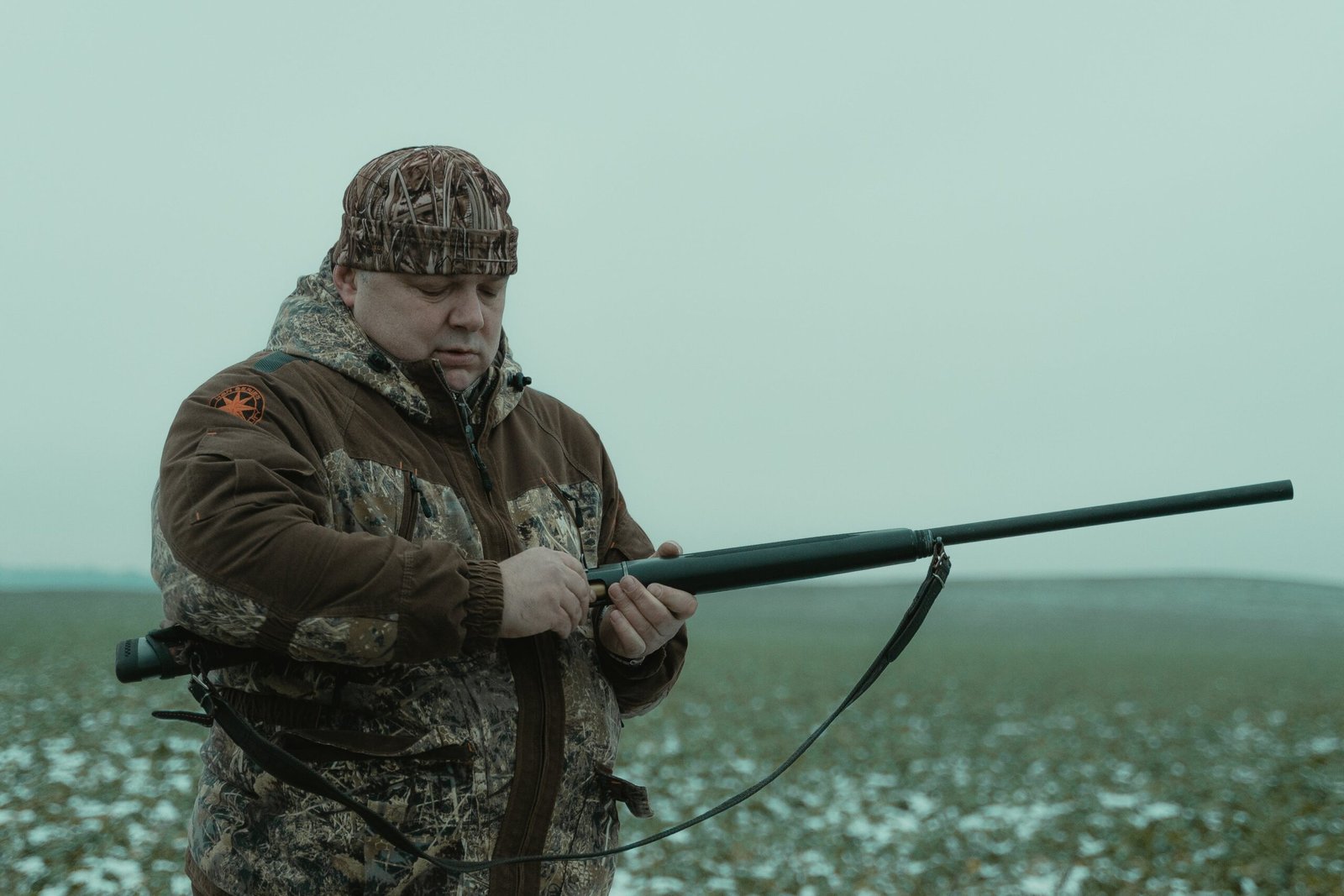How To Attract Deer For Hunting
Deer hunting is a popular and exciting outdoor activity for many people. However, attracting deer to your hunting area can be challenging at times. You may have the perfect spot picked out for your hunt, but if there are no deer in the area, you may not have much luck.
In order to increase your chances of success, it is important to understand how to attract deer to your hunting area. In this guide, we will discuss the various methods and techniques for attracting deer, including food plots, scent attractants, and creating a suitable habitat. By following these tips, you can increase your chances of having a successful and rewarding hunting experience.
How To Attract Deer For Hunting
Here are some effective ways to attract deer to your hunting area:
Food Plots
Food plots are one of the most popular and effective methods for attracting deer. These are small areas of land that are planted with crops specifically designed to attract deer. Common food plot plants include clover, corn, soybeans, and oats.
When choosing a location for your food plot, it is important to consider factors such as sunlight, water availability, and accessibility for deer. Food plots should be established well before hunting season begins so that the plants have time to grow and become a reliable food source for the deer.
Scent Attractants
Deer have a highly developed sense of smell, making scent attractants a useful tool for attracting them to your hunting area. These can include deer urine, food scents, and doe estrous scents. When using scent attractants, it is important to choose scents that are specific to the time of year and stage of the reproductive cycle for maximum effectiveness.
It is also important to use scent attractants with caution, as using too much or at the wrong time could potentially spook deer instead of attracting them. It is best to follow the instructions on the product and use it sparingly and strategically.
Habitat Management
Creating a suitable habitat for deer can also be an effective method for attracting them to your hunting area. This involves managing the land to provide food, cover, and water sources that are attractive to deer. Examples of habitat management techniques include planting native vegetation, creating brush piles, and providing water sources such as ponds or streams.
Another important aspect of habitat management is to limit human activity in the area. Deer are wary animals and will avoid areas with frequent human presence. By limiting human disturbance, deer will feel more comfortable coming to your hunting area.
Field Dressing
After you have successfully attracted deer to your hunting area, it is important to properly field dress the animal. This involves removing the internal organs and cleaning the carcass in order to preserve the quality of the meat.
Field dressing should be done as soon as possible after harvesting a deer, preferably within an hour or two. It is also important to follow proper safety precautions and dispose of the remains properly.
By following these tips for attracting deer to your hunting area, you can increase your chances of a successful hunt. Remember to always follow local regulations and ethical hunting practices. Happy hunting!
Why choosing a suitable hunting area is important
Choosing a suitable hunting area is crucial for a successful and enjoyable deer hunt. Not only do you want to attract deer to your chosen location, but you also want to ensure that it is a safe and ethical environment for both yourself and the animals.
A good hunting area should have ample food, water, and cover for deer. It should also be located in an area with a healthy deer population and minimal human disturbance. It is also important to choose an area that is easily accessible for you, as well as having proper permission from the landowner if hunting on private property.
By carefully choosing your hunting area and using effective attractant methods, you can greatly increase your chances of a successful and fulfilling deer hunt. Remember to always practice ethical and responsible hunting practices, and enjoy the beauty of nature while on your hunt. Happy hunting!
Tips for a successful deer hunting trip
As well as knowing how to attract deer to your hunting area, there are some other tips that can increase your chances of success on your deer hunting trip:
- Be prepared with the right equipment and gear. This includes proper clothing, weapons, and any necessary permits or licenses.
- Practice good scent control techniques. Deer have an excellent sense of smell and can be easily spooked by human scents. Use scent-eliminating products and avoid wearing strong-smelling perfumes or colognes.
- Scout the area beforehand. Take the time to scout out potential hunting areas and familiarize yourself with the land, deer behavior, and potential sign of their presence.
- Stay patient and still while hunting. Deer have excellent eyesight and can be easily scared off by sudden movements or noise. Stay still and quiet while waiting for deer to appear.
- Be ethical and responsible in your hunting practices. This includes following local regulations, only taking shots within your skill level, and respecting the animal you are hunting.
By following these tips and continuously learning about deer behavior and proper hunting techniques, you can have a successful and rewarding deer hunting trip.
Mistakes that hunters should avoid
While hunting, it is important to avoid certain mistakes that can hinder your chances of success or potentially harm yourself or others. Some common mistakes to avoid include:
- Not following safety precautions. Always handle weapons responsibly and wear proper safety gear while hunting.
- Hunting without proper knowledge or training. It is crucial to educate yourself on proper tracking, field dressing, and hunting techniques before heading out into the field.
- Hunting without proper permission. Always obtain permission from landowners before hunting on private property.
- Not practicing ethical and responsible hunting practices. This includes following local regulations, properly disposing of remains, and respecting the animal you are hunting.
By avoiding these mistakes and always putting safety and ethical practices first, you can have a successful and enjoyable hunting experience. Remember to always be responsible and respectful while in the field
FAQs
Does using scent attractants harm deer?
No, when used properly and in moderation, scent attractants do not harm deer. However, it is important to use them with caution and follow the instructions on the product to avoid spooking deer instead of attracting them.
Can I hunt without a license?
No, it is illegal to hunt without a proper hunting license. Make sure to obtain all necessary permits and licenses before heading out on your hunting trip.
What should I do if I accidentally wound a deer?
If you accidentally wound a deer, it is important to stay calm and follow proper safety precautions. Do not pursue the animal if it runs away, as this can cause further harm. Instead, wait for a while and then begin tracking the wounded deer using proper tracking techniques. If necessary, seek help from experienced hunters or a local game warden.
How long can I leave a harvested deer in the field before field dressing it?
It is best to field dress a deer as soon as possible after harvesting it, preferably within an hour or two. This helps preserve the quality of the meat and reduces the risk of spoilage. If you are unable to field dress the deer immediately, try to keep it cool and out of direct sunlight until you can properly clean and process it.
Conclusion
In conclusion, choosing a suitable hunting area and utilizing effective attractant methods can greatly increase your chances of a successful deer hunt. It is also important to follow proper safety precautions and ethical hunting practices to ensure the well-being of both yourself and the animals.
Additionally, continuously educating oneself and avoiding common mistakes can lead to a rewarding and enjoyable hunting experience. Remember to always be responsible and respectful while in the field, and happy hunting!
So, with all the necessary information and tips at hand, go out and plan your next deer hunting trip for a successful and fulfilling experience in nature. Enjoy the beauty of the wilderness, but always remember to be responsible and ethical in your hunting practices.




What do you think?
It is nice to know your opinion. Leave a comment.